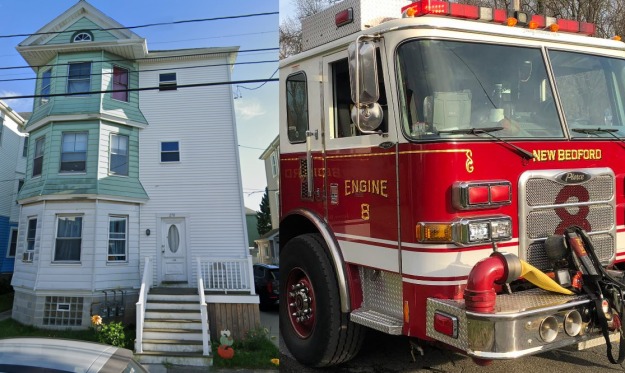Mayor Jon Mitchell presented his Fiscal Year 2018 City Budget before the New Bedford City Council on Wednesday, May 10, 2017.
This year’s budget is marked by the growth of nondiscretionary items mandated by state policy, such as the required Net School Spending amount and payroll subject to binding arbitration.
Nearly three-quarters of the FY 2018 budget is predetermined by State mandates or regional agreements, and only a relatively small portion can be considered truly discretionary.
For example, about 63% of the city government’s General Fund payroll consists of unionized public safety positions that are subject to a binding arbitration process that weakens the City’s negotiating position, all but guarantees unaffordable outcomes, and leaves the City struggling to maintain current levels of service. Overall, nondiscretionary items, including the Net School Spending requirement and payroll components that are subject to binding arbitration, will account for 85% of the General Fund’s FY 2018 budget of $324.7 million.
While New Bedford’s economy continues to experience a period of modest economic growth, with steady growth in employment, the City’s finances remain tight and under Massachusetts’ legal mandates, little choice on spending is left to the determination of the City. Cities and towns are left with little ability to adjust the pressures of an annual budget under State law, and increases in unfunded mandates, such as charter schools, continue to grow without relief from the State.
In his annual budget letter to the City Council, Mayor Mitchell wrote that the City faces “the sizable and growing impact of nondiscretionary expenses” across the budget, further increased by the State’s failure to fund its own mandates:
“The Commonwealth has complicated this [budget] process by not meeting its statutory funding obligations and continuing to impose requirements that serve as roadblocks to effective reform. In addition to the binding arbitration process, some significant examples include limitations placed on pension and health care management, as well as the State’s failure to meet its commitments to neither fund the school system foundation budget nor provide its legally established levels of support for charter schools.”
There are several main factors that drive the City’s FY 2018 budget:
- Costs of employee benefits: Medical costs have increased over the past year, and the City’s share of healthcare premium costs is projected to increase by $3.5 million over the FY 2017 budget. The City’s pension assessment will increase by approximately $1 million, as determined by the regional retirement board.
- Charter school obligations: The growth in the City’s obligation toward charter schools continues to divert more funds away from New Bedford Public Schools. The State has failed to meet its own statutory obligation to partially reimburse municipalities’ costs, and, as a result, the City’s net obligation will go from $10.5 million in FY 2017 to nearly $12.1 million in FY 2018.
- Revenue growth does not keep pace with costs of doing business: City departments identified nearly $2 million in unmet needs, including contractual increases that the City is required to fund, as well as an increased funding mandate from the state for Net School Spending.
The City has made consistent progress in its efforts to ensure accountability and improve the transparency of its budget process. The Government Finance Officers’ Association awarded New Bedford its Distinguished Budget Presentation Award this year for performance management and budget transparency, and the City’s Open Checkbook initiative allows taxpayers to view departments’ use of public funds by posting departments’ expenditure activity online using a searchable database. In addition, the City’s Renewable Energy Power Purchase agreements and energy management program have produced a nearly $1.3 million reduction in annual energy expenses since 2014.
The City has exercised restraint and instituted efficiencies in its budget. From FY 2009 to FY 2016, the City reduced the number of full-time positions supported by the General Fund by 136, or 12.7%.
In his message to the Council, Mayor Mitchell added that while the City continues to see growth in its economy, the City’s mandated costs continue to grow faster than the City’s resources can accommodate.
Noting that employment has increased by 11.1% since 2012, motor vehicle excise tax revenue and meals tax and room occupancy revenue rose by 26% since 2012, and building permit volume is up by 25% since 2012 – all indicators of economic activity – the continued growth has not fully translated into construction-related growth in the tax base. New growth revenue totaled $1.9 million in 2016, up from $0.7 million in 2012, but has still not kept pace with the costs of city services and unfunded mandates.
 New Bedford Guide Your Guide to New Bedford and South Coast, MA
New Bedford Guide Your Guide to New Bedford and South Coast, MA









